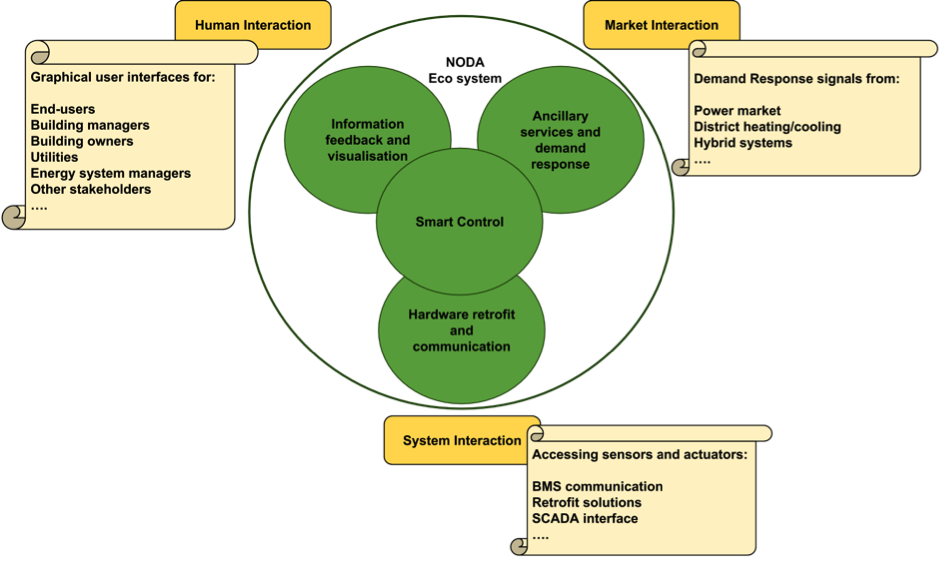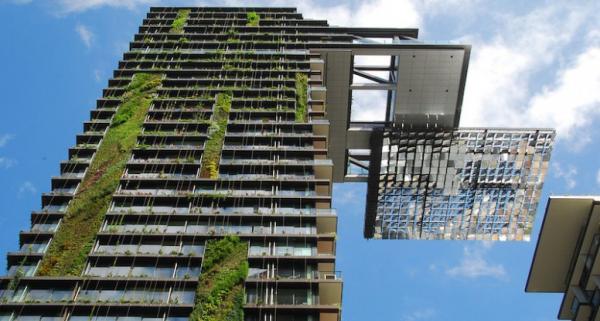The NODA ICT platform underpins the STORM controller development. This platform has been developed over several years and is now in use in a range of energy efficiency projects throughout Europe.
NODA applies it to their Smart Heat Grid and Smart Heat Building systems. In STORM this platform will be used as a framework to reduce development costs and facilitate a smooth replication effort beyond the project itself. Smart control is at the core of the NODA system, which forms the basis for STORM. However; this core requires additional functionality. To achieve a system wide optimisation platform several links need to be connected into a coherent network that covers the whole system, and “a chain is never stronger than its weakest link.” Having to constantly re-invent metaphorical wheels can substantially drain resources from a budget, thus reducing the success rate of many project. Having a flexible and robust platform makes it possible for the actors within STORM to focus on the primary goals since the basic framework is already there.

Three interface vectors are defined in the NODA platform; human, market and system interaction. The system interaction is the most basic of these. It makes sure that the controller and its associated functionalities can interact with hardware systems along the energy chain. This includes such things as; building management systems and SCADA interoperability. NODA has also developed a retrofit hardware solution to interface with a wide range of existing heating controllers and heat meters. This makes it possible to achieve high market penetration in most district heating systems where normally a diverse set of controllers is implemented among the customers. The market interaction vector facilitates models for ancillary services and demand response implementations. Building sustainable energy systems often requires a more distributed and complex controller context, which needs to be managed by the platform. The human interaction vector is becoming increasingly important as customer empowerment and energy awareness is moving to the forefront of energy efficiency schemes throughout Europe. Being able to present relevant information and knowledge is vital for any smart controller. The NODA platform provides a framework for such development while facilitating relevant interface vectors, which increases the expected value of STORM and its subsequent replication effort.

